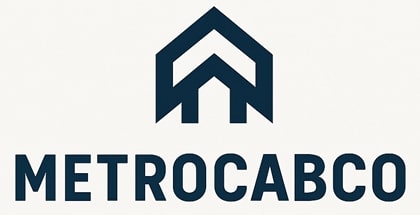The phrase “No Schema” equates to “No Spotlight” in AI search because lacking schema markup leads to reduced online visibility and missed chances for enhanced search prominence. Schema enhances search engine interpretation of content, resulting in richer search results like featured snippets. Without it, webpages suffer in ranking, making them less discoverable. This absence diminishes user engagement and ultimately hampers businesses’ success. Understanding the significance of schema can reveal deeper insights into optimizing search performance.
Key Takeaways
- Without schema markup, search engines struggle to understand content, leading to diminished visibility in search results.
- Lack of structured data results in fewer rich snippets, causing missed opportunities for enhanced user engagement.
- Websites without schema are less likely to appear in featured snippets or knowledge graphs, reducing their online presence.
- Absence of schema can lead to lower click-through rates, as users may overlook unmarked content in favor of richer results.
- In a competitive digital landscape, not using schema means falling behind, as competitors with structured data gain greater visibility and trust.
Understanding Schema Markup
Although many webmasters may overlook it, understanding schema markup is crucial for enhancing website visibility in AI-driven search engines. Schema markup is a form of structured data that provides context to search engines about the content of a webpage.
By using specific vocabulary defined by schema.org, it helps categorize information, making it easier for algorithms to interpret. Implementing schema can lead to richer search results, such as featured snippets, knowledge graphs, and enhanced listings.
Also Read
This increases the likelihood of attracting organic traffic, as users are drawn to visually appealing search results. As a result, webmasters should prioritize schema markup to guarantee their content is effectively indexed and presented in an increasingly competitive digital landscape.
The Role of Structured Data in AI Search
Structured data plays an essential role in enhancing visibility within AI search environments.
By organizing information clearly, it not only improves search engine rankings but also fosters greater user engagement.
As search algorithms evolve, the significance of structured data continues to rise, influencing how content is discovered and interacted with online.
Importance of Structured Data
While many website owners focus on content quality and keyword optimization, the significance of structured data in AI search cannot be overlooked.
Structured data serves as a bridge between content and AI algorithms, ensuring that search engines can accurately interpret and categorize information. This enhances the chances of content being featured prominently in search results.
Key reasons for the importance of structured data include:
- Improved Search Engine Understanding: Helps algorithms comprehend the context of content.
- Enhanced User Experience: Provides richer search results, such as snippets and carousels.
- Increased Click-Through Rates: Eye-catching results lead to higher engagement.
- Future-Proofing Content: Aligns with evolving AI technologies and search methodologies.
Incorporating structured data is essential for maximizing online visibility.
Enhancing Visibility in Search
A significant factor in enhancing visibility in search results is the effective use of structured data. This data, formatted in a consistent and organized manner, enables search engines to interpret content more accurately.
By providing context about the information on a webpage, structured data helps AI systems deliver more relevant search results. Websites utilizing schema markup can showcase rich snippets, which often attract higher click-through rates due to their informative presentation.
Additionally, structured data can influence how content is displayed across various platforms, increasing the chances of appearing in featured snippets or knowledge panels.
Ultimately, leveraging structured data is essential for improving search visibility and ensuring that content stands out in an increasingly competitive digital landscape.
Impact on User Engagement
Effective implementation of structured data greatly enhances user engagement in AI search. By organizing information in a machine-readable format, structured data allows search engines to deliver more relevant and engaging results.
This leads to several positive outcomes for users:
- Improved Click-Through Rates: Rich snippets attract attention, leading to higher user interest.
- Enhanced Trust and Credibility: Structured data signals reliability, fostering user confidence.
- Targeted Content Delivery: Users receive content that aligns closely with their queries, increasing satisfaction.
- Increased Time on Page: Engaging and relevant results encourage users to explore further.
Ultimately, the strategic use of structured data transforms how users interact with search results, making the experience more effective and enjoyable.
How Lack of Schema Affects Visibility
The absence of structured data greatly diminishes content visibility in AI search environments.
Without proper schema, search rankings may suffer, resulting in reduced discoverability for valuable content.
This lack of organization hinders the ability of search engines to effectively interpret and present information to users.
Importance of Structured Data
While many businesses endeavor to enhance their online presence, the absence of structured data can severely limit their visibility in AI-driven search environments.
Structured data serves as a roadmap for search engines, guiding them to understand a website’s content better. Without it, businesses may struggle to stand out among competitors.
Key reasons why structured data is essential include:
- Improved Context: It provides clarity about the content, facilitating better indexing.
- Enhanced Rich Snippets: It allows for richer search results, attracting more clicks.
- Increased Engagement: Structured data can lead to higher user interaction rates.
- Future-Proofing: It prepares businesses for evolving AI search technologies.
Impact on Search Ranking
Structured data greatly influences search rankings, as its absence can diminish a website’s visibility in competitive landscapes.
Search engines rely on structured data to better understand the content of web pages, thereby determining their relevance to specific queries. Without schema markup, search engines may struggle to categorize and rank a site accurately, leading to lower placement on search results pages.
This lack of visibility can result in reduced traffic and engagement, particularly in niche markets where competition is fierce. Additionally, websites lacking structured data miss opportunities for rich snippets, which enhance user experience and can considerably improve click-through rates.
Enhancing Content Discoverability
Without schema markup, content discoverability faces significant challenges, as search engines struggle to interpret and categorize web information effectively.
This lack of structured data limits visibility, resulting in missed opportunities for engagement and traffic.
The consequences of not utilizing schema include:
- Reduced search engine understanding: Search engines may misinterpret content, leading to irrelevant rankings.
- Lower click-through rates: Unoptimized snippets fail to attract user attention in search results.
- Decreased relevance in AI results: AI models may overlook unmarked content, diminishing its potential spotlight.
- Limited audience reach: Without schema, content fails to connect with targeted users searching for specific information.
In essence, schema markup plays an essential role in enhancing content visibility and discoverability in an increasingly competitive digital landscape.
Benefits of Implementing Schema
Implementing schema offers numerous advantages that can enhance online visibility and improve search engine performance.
By providing structured data, schema helps search engines better understand the content of a website, which can lead to richer search results and improved click-through rates. This structured information facilitates the display of enhanced features such as rich snippets, knowledge panels, and carousels, ultimately attracting more attention from users.
Additionally, schema can improve local SEO, making businesses more discoverable in local searches. It also aids in boosting content relevance, ensuring that the right audience finds the information they need.
Best Practices for Schema Implementation
To maximize the benefits of schema, website owners should adhere to best practices that guarantee effective implementation. Proper schema markup can enhance visibility and engagement in AI search results.
The following best practices are essential for optimal schema usage:
- Choose the right schema type: Select the most appropriate schema markup that aligns with the content type.
- Validate schema markup: Use tools like Google’s Structured Data Testing Tool to confirm accuracy and correctness.
- Keep schema up to date: Regularly update schema to reflect changes in content or structure to maintain relevance.
- Avoid markup manipulation: Adhere to guidelines set by search engines to prevent penalties for misleading or incorrect schema use.
Implementing these practices can considerably improve search performance and user experience.
Future Trends in Schema and AI Search
As AI search technologies continue to evolve, the role of schema markup is poised to undergo significant transformation. Future trends indicate a shift towards more dynamic and context-aware schema implementations, enabling enhanced user experiences. AI will likely leverage structured data to deliver personalized and contextually relevant results, emphasizing the importance of real-time updates in schema.
| Trend | Implication |
|---|---|
| Enhanced Personalization | AI will provide tailored search results based on individual user preferences. |
| Contextual Awareness | Schema will adapt to user context, improving relevance in results. |
| Dynamic Updates | Real-time schema changes will guarantee data stays current and accurate. |
These advancements will solidify the necessity of schema in optimizing AI search outcomes.
FAQ
What Is Schema Markup in Simple Terms?
Schema markup refers to structured data that helps search engines understand the content of a webpage. By providing context, it enhances visibility in search results, enabling better indexing and richer information display for users.
How Do Search Engines Interpret Schema Data?
In the vast ocean of information, search engines navigate using schema data as a lighthouse. They interpret this structured information to enhance understanding, improving relevance and visibility, guiding users swiftly to their desired content.
Can Schema Markup Affect Website Loading Speed?
Schema markup generally does not considerably impact website loading speed. However, excessive or poorly implemented markup may introduce slight delays in processing, but the overall effect on performance is typically negligible in most scenarios.
Is Schema Markup Necessary for All Websites?
Schema markup is not necessary for all websites; however, it enhances search engine understanding and improves visibility. Websites focused on rich snippets and better user engagement can greatly benefit from implementing schema markup.
How Often Should Schema Markup Be Updated?
In the ever-evolving digital landscape, schema markup should be updated regularly, ideally with each content change or significant website update, ensuring relevance and maximizing visibility across search engines and enhancing user experience.
Conclusion
In the vast digital landscape, schema markup stands as a lighthouse, guiding AI search engines through the fog of unstructured data. Without this beacon, content risks being lost in the shadows, unseen and unheard. Embracing structured data not only illuminates visibility but also enhances relevance in an increasingly competitive arena. As the future unfolds, those who harness the power of schema will navigate the evolving tides of AI search, ensuring their voices resonate far and wide.













